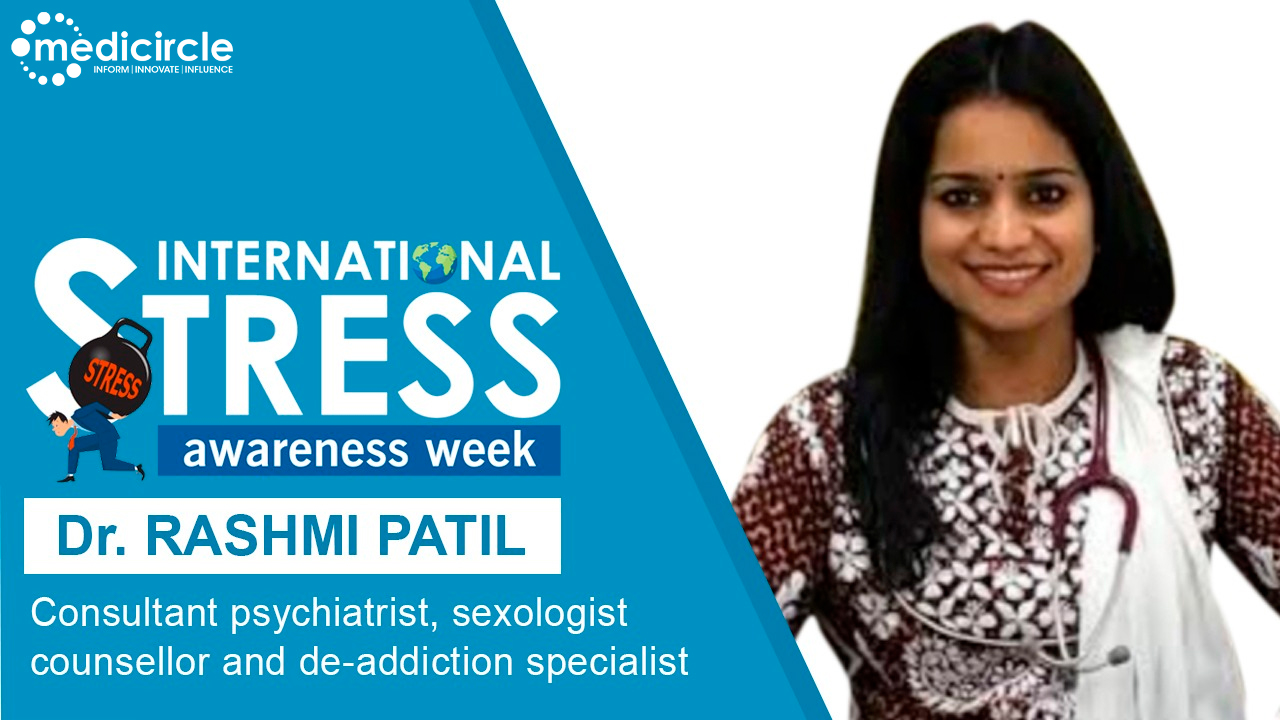The feeling of being overwhelmed or unable to cope with mental and emotional pressure is stress. Stress is our body’s response to pressure. Many different situations or life events can cause stress. Sometimes, this stress response can be useful: it can help us push through fear or pain. However, too much stress can cause negative effects. Long term, this can affect our physical and mental health.
As per the result of a large-scale survey conducted across India in 2019, young adults between the age of 20 and 29 years of both genders were the most stressed in the country. The major cause of high-level stress among young people are peer pressure, pressure to succeed in academics or work, and irregular routines. 50% of Indian professionals have reported that an uncertain future is their topmost source of stress as was revealed in a recently concluded survey by The7thFold, a boutique HR and Wellbeing firm.
Every year, the world celebrates International Stress Awareness Week from 1st to 5th November. The day encourages people to sit back, unwind and embrace peace. Awareness about this has become even more significant this year due to the tough times people across the world have gone through in the COVID-19 outbreak. We at Medicircle are conducting the International Stress Awareness Week Series wherein we will be featuring experts in this field to understand and create more awareness about the effects of stress.
Dr. Rashmi Patil is a consultant psychiatrist, sexologist counselor and de-addiction specialist with more than 8 years of experience in her field. Currently, she is associated with Shree hospital, Nagar road, Shree hospital, Kharadi, Orchid hospital, CT nursing home, Sathe clinic and hospital in Pune. She has a professional interest in
general psychiatry de-addiction and detoxification. treating sexual dysfunction in males and females. relaxation and stress management psychotherapy and counseling marriage counseling and couple therapy
Stress in children
Dr. Rashmi explains, “Stress is the reaction to the pressure. It varies from person to person and child to child. Due to this pandemic, children are facing a lot of behavioral issues, especially teenagers. Teenagers are going through the transition phase, they are not able to go out, schools are shut, online classes can't open up with their parents. Children along with their parents are under too much stress."
Helping your child to cope with stress
Dr. Rashmi describes, “Parenting is a learning process. No one is perfect.
Do not panic, try to understand the causes of their stress, give them time.
Talk with your child, listen to them patiently.
Spend quality time with them like playing, exercising, eating.
Give your example to win their trust.
Positively encourage them, support them.
If required, take professional help.
Stress and your health
Dr. Rashmi elucidates, “As per the studies, some amount of stress is necessary for our body. Stress has a negative and positive impact on the mind and body. Positive stress improves our ability. It improves our mental and physical health. A little bit of stress is essential for all age groups. Stress becomes abnormal and chronic when it is there for too long and we are not able to cope with it. Negative stress increases lots of mental health problems like depression, anxiety, irritated. Hair fall, acne, obesity, eczema, sleep issues, GI disturbances, heart problems are some of the side effects seen in prolonged stress."
Ways to deal with stress
Dr. Rashmi mentions, “We can’t avoid stress, we should learn to handle it. Two things are needed to deal with stress – Lifestyle modification and behavioral modification.
Lifestyle modification – Fix your bedtime and wake-up time.
Shut down your screen (of any form) 2 hours before going to bed. The screen emits a very bright light that suppresses the melatonin hormone. Sun exposure for absorbing vitamin D naturally to avoid lifestyle diseases. Healthy food – No junk foods Avoid alcohol, cigarettes, sleeping pills to manage your stress. Regular exercise for physical activity. It releases stress hormones. Meditation for mindfulness Don’t overthink – Introspect yourself. Try to resolve the conflicts otherwise it may cause irreversible damage.
Behavioral modification – We need to increase our tolerance level. In its absence, even small problems look big. Guilt is the biggest barrier to improvement. Guilt will increase your stress. One should not remain guilty, analyze your mistake and correct it. This will help to manage your stress too."
(Edited by Renu Gupta)

 As per a survey, young adults between the age of 20 and 29 years of both genders were the most stressed in the country. The major cause of high-level stress among young people are peer pressure, pressure to succeed in academics or work and irregular routines. Here are some easy tried and tested tips to deal with your stress
As per a survey, young adults between the age of 20 and 29 years of both genders were the most stressed in the country. The major cause of high-level stress among young people are peer pressure, pressure to succeed in academics or work and irregular routines. Here are some easy tried and tested tips to deal with your stress





.jpeg)
.jpeg)


.jpeg)
_(1).jpeg)
_(1)_(1)_(1).jpeg)
.jpeg)







.jpeg)

.jpeg)

.jpeg)
.jpeg)
.jpeg)
.jpeg)
.jpeg)



